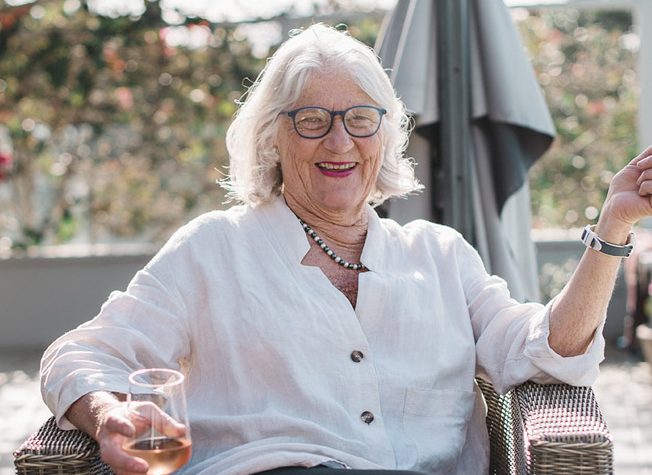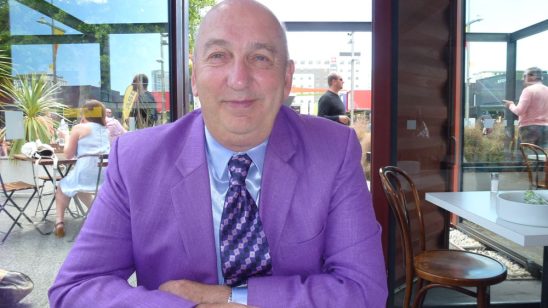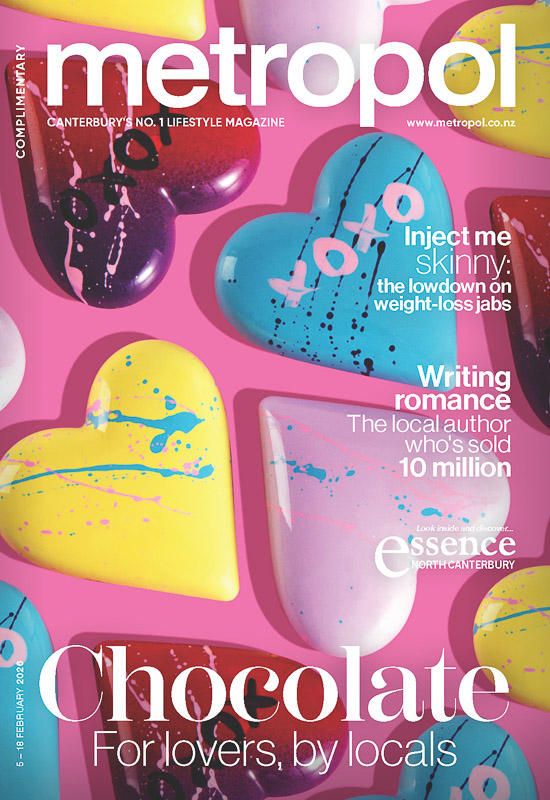
A life championing cheese
In mid-March, world-renowned cheese-master Juliet Harbutt visited Christchurch, supporting the Tearfund Sri Lanka Post-war Dairy Project. Metropol’s Céline Gibson caught up with her to find out more.
Cheese is a passion for Kiwi Juliet Harbutt, and always will be. These days she uses her love and knowledge of cheese to help those less fortunate, while educating others to the joys and nuances of fine cheeses.
The recent Tearfund event, at Christ’s College, gave attendees the opportunity to sample a selection of Aotearoa’s finest artisan cheeses, expertly matched with wines from local producer “27 Seconds”, along with salads and desserts.
Juliet was thrilled to have been asked to come aboard the Tearfund project, as so many of the stories behind it have made a lasting impression on her.
“I have worked with cheesemakers around the world, helping them to make better cheeses, so to see people living in extreme poverty being able to raise themselves out of that poverty is wonderful. Imagine transforming something as simple as milk into wonderful products that can be sold, and enable children to go to school.”
The cheeses Juliet presented for tasting at the event were based on the seven different types of cheeses found throughout the world – fresh, aged-fresh, soft white rind, semi-soft, hard, blue, and flavour added.
Juliet says once people learn about the categories and what they should be like, they can work out if a cheese has been well looked after, is of good quality, and even how ripe it is.
“Cheese, unlike wine, has a vintage every day, which means cheese-making is more complex than wine,” Juliet says.
Her love for cheese started from when she was little. “I thought my grandmother’s sandwiches of Colby cheese slathered with plum jam were spectacular.” Her cheese journey since those early days has been no less spectacular.
Juliet’s World Cheese Book is published in nine languages, with more than 90,000 copies sold, she was a celebrity guest on the prestigious BBC 4 Food Programme, and was advisor to the then Prince Charles on developing his own cheese, as well as Blur bassist
Alex James.
In the 1980s, while on an overseas sabbatical, Juliet attended a cooking course in Paris. “The woman running the course took us to the best bakers, butchers, and fishmongers, and to a wine shop where we were served three cheeses to try with our glass of wine.
“One was a goat’s cheese, one a triple cream, and one a hard cheese. I thought if this was real cheese that I was eating, God knows what I had been eating in the past.”
That was Juliet’s lightbulb moment. She sold her Wellington business, and, along with her business partner at the time, opened Jeroboams in London’s South Kensington district in 1985.
A wine and cheese shop, it specialised in raw milk cheese (more than 200 varieties) from Europe and Britain. “I haven’t looked back since,” Juliet says. In 1994 Juliet launched the British Cheese Awards. “When I moved to Britain, they were making good cheese but everyone thought French cheese was better, so that was what they bought. I felt so frustrated, because I knew that there were great British cheeses out there.”
Juliet came up with the idea of The British Cheese Awards to promote British Cheese. The first year of the awards saw around 296 cheeses from 96 cheesemakers entered.
By the time Juliet sold it in 2015, there were more than 1000 entries from just under 300 cheesemakers.
By 2000, realising that the only people sampling many of the cheeses were the judges and cheese makers, Juliet created The Great British Cheese Festival, with tastings and Masterclasses, to follow the awards.
The festivals were held in different locations each year, such as Blenheim Castle, Cheltenham, Stow-on-the-Wold, and London.
“I moved it around because I wanted all of England to be able to access these cheeses.”
In the 1980s, Juliet was made a member of the Guild des Fromagers, and given the illustrious title Confrerie des Chevaliers du Taste-Fromage de France.
She returned to New Zealand in 2016 to reside above Black Barn Vineyard in Hawke’s Bay.
From here she runs boutique and bespoke guided tours, combining her love of food, cooking and entertaining. With cheese at its heart, life could not get much better, she says.
About tearfund 
After the end of Sri Lanka’s devastating civil war, Tearfund saw there was an opportunity to help smallholder dairy farmers get back on their feet using New Zealand expertise and support. When the dairy project started in 2012, just 15 farmers were making an average of NZ$10 per month, equating to 150 litres of milk. Today, there are more than 4500 farmers registered in the programme, making an average of NZ$150 per month, which equates to 500,000 litres a month, more than a 3000 percent increase.
www.tearfund.org.nz/Farming-and-Enterprise




